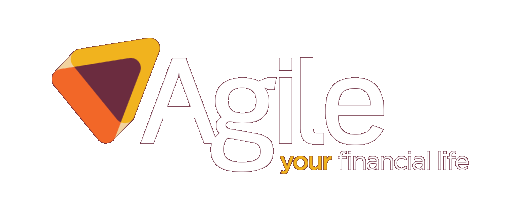A recent article published by an influential think tank, the Institute for Fiscal Studies (IFS), has suggested that the Labour government should consider increasing the basic rate of Income Tax in order to boost revenue and curb the amount of money it has to borrow.
Doing this would break a so-called “taboo” as no chancellor has increased the basic rate of Income Tax for 50 years. Indeed, for much of that time, the aim of most chancellors has been to cut the basic rate as a symbol of their commitment to low personal taxation.
In this article, you can discover why the IFS is suggesting the government make this move, and how it could affect your finances.
The basic rate of Income Tax has been gradually reduced over the last 50 years
The last chancellor to increase the basic rate of Income Tax was Dennis Healey in 1975, who raised it from 33% to 35%. At the time, the UK government was facing the combined financial threats of economic weakness at home, together with global uncertainty driven by the oil crisis.
Since that time, the basic rate has only ever been reduced, with the final reduction to its existing rate of 20% made by the former chancellor, Gordon Brown, in 2007.
In reality, however, the freeze in tax thresholds and the Personal Allowance since 2021 has actually resulted in many individuals paying more Income Tax. The Personal Allowance stands at £12,570 and is set to be frozen at this level until 2028, meaning that the more a person earns, the higher their Income Tax is likely to be. This is commonly known as a “stealth tax”.
Previous governments have sought alternatives to Income Tax to raise revenue
Instead of increasing the basic rate, successive governments have used other methods to raise revenue, such as implementing higher taxes on businesses and capital gains.
The rate of VAT has also increased markedly in the last 50 years, from 8% in 1975 to 20% in 2025/26, as chancellors have seen taxing consumption more politically acceptable to the electorate than taxing income.
Previous governments have also put up the rate at which individuals pay National Insurance contributions (NICs) on their income. While having the same effect as an increase in Income Tax, this does seem to be somewhat less emotive. This could be down to the fact that NICs receipts are hypothecated and used to fund the State Pension and other benefits such as Maternity Allowance, so earners understand where their contributions are going.
Election promises have restricted the government’s revenue raising options
During the 2024 general election campaign, the Labour Party manifesto pledged no increases in:
- The standard rate of VAT
- Employee NICs
- Income Tax.
Labour made it clear that the government intends to fund increased public spending through the proceeds of economic growth rather than higher taxes. It has also committed to only increase borrowing to fund growth.
To this end, this government has announced a series of measures, including a massive house-building programme, along with big infrastructure projects such as airport expansion and the Oxford-Cambridge corridor.
However, all those measures will take time to come to fruition and deliver growth. In the meantime, public services, such as the NHS, schools, and local government, remain in need of financial support.
External events have blown government plans off course
As well as internal challenges, the government’s financial position has been made even more precarious by two external events:
- The reduction in the US financial and military commitment to Ukraine, which has forced other nations, including the UK, to boost defence spending.
- The imposition by President Trump of a 10% tariff on all UK exports to the US.
While increased military expenditure could ultimately be an effective growth driver, it poses an immediate funding problem for the treasury.
Tariffs on UK goods and services entering the US provide a more immediate challenge. A paper issued by the Department for Business and Trade confirmed that these have led to a reduction in business confidence, and a report in the Guardian suggesting that this would hinder the very growth the government is hoping for.
The effect of an Income Tax rise on your income
Clearly, there is no danger of Income Tax rates reverting to the level they were at in 1975.
However, according to the government, just a 1% increase in the basic rate would raise £6.55 billion in 2025/26 and £7.9 billion the following year. Additionally, if the government were to announce an increase of 1% on all Income Tax rates, this would raise £8.1 billion next year.
So, how would an increase in Income Tax affect your take-home pay?
According to Forbes, the UK national average salary is £37,430, as of April 2025.
Assuming you are entitled to the full Personal Allowance of £12,570, the table shows the comparative amounts of Income Tax you would pay.
| Annual income £37,430 | Income Tax payable |
| Basic rate of 20% | £4,970.30 |
| Basic rate of 21% | £5,220.60 |
| Annual increase in Income Tax | £250.30 |
Source: Government website
While any potential increase in Income Tax is likely to be relatively small, it’s clear that this would be controversial, especially given the manifesto commitment the Labour Party made not to take such a step.
However, the government could justifiably argue that it could not have foreseen the issues around defence spending and US tariffs.
As a result, it may be tempted to earmark any Income Tax rise for defence spending, which may well help to increase the public’s acceptance of it.
Please note: This blog is for general information only and does not constitute financial advice, which should be based on your individual circumstances. The information is aimed at retail clients only.
Please do not act based on anything you might read in this article. All contents are based on our understanding of HMRC legislation, which is subject to change.
The Financial Conduct Authority does not regulate tax planning.



